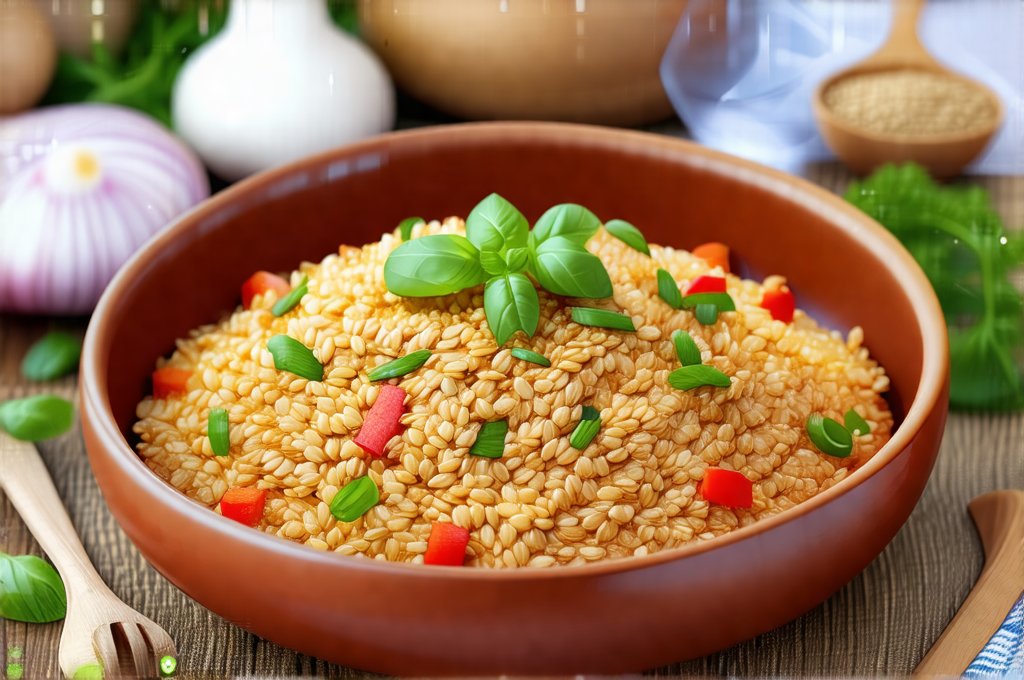The evening is often a time when our bodies naturally begin to slow down, preparing for rest and rejuvenation. However, for many, this transition is disrupted by digestive discomfort – bloating, gas, even mild cramping that keeps us from truly relaxing. Often, the choices we make at dinner, particularly around carbohydrates, can significantly impact how easily (or uneasily) we drift off to sleep. Embracing warm grain recipes isn’t about restrictive dieting; it’s about intentionally choosing foods that support our digestive system as night approaches, promoting a sense of calm and well-being. It’s acknowledging the intimate connection between what we eat and how we sleep, and harnessing the power of simple ingredients to create nourishing evening meals. If you find yourself struggling with digestion at night, consider exploring how to adjust recipes for better tolerance.
These recipes aren’t necessarily complex or time-consuming; in fact, many are incredibly easy to prepare, focusing on whole grains cooked with gentle seasonings and comforting flavors. The key is the warmth itself – warm foods are easier for the digestive system to process than cold ones, requiring less energy from the body during a period when it’s trying to conserve resources. Furthermore, certain grains are inherently more digestible, and pairing them with specific herbs and spices can further enhance their calming properties. This approach leans into traditional food wisdom that prioritizes nourishment and balance over quick fixes or fad diets, offering a gentle pathway towards improved evening digestion and restful sleep. For those with children experiencing digestive issues, simple dinner ideas can make a big difference.
The Soothing Power of Grains
Grains often get a bad rap in modern diet culture, frequently associated with bloating and weight gain. However, this is largely due to the consumption of refined grains – those stripped of their fiber, vitamins, and minerals. Whole grains, on the other hand, are nutritional powerhouses, offering a wealth of benefits beyond just carbohydrates. They provide essential fiber which aids in digestion, regulate blood sugar levels (preventing energy crashes that can disrupt sleep), and contain vital nutrients like magnesium, zinc, and B vitamins, all crucial for optimal bodily function. Selecting the right grains is therefore paramount when crafting evening recipes designed to promote digestive calm.
Consider the digestibility of different grains – some are naturally easier on the stomach than others. Rice (especially basmati or jasmine) is often well-tolerated, as is quinoa which, despite technically being a seed, cooks and behaves much like a grain. Oats, particularly steel-cut oats or rolled oats (avoiding instant varieties), are also excellent choices due to their soluble fiber content, known for its soothing effect on the digestive tract. Barley, while incredibly nutritious, can be harder to digest for some individuals, so it might be best reserved for earlier meals. Understanding your own body’s tolerance is key, and experimenting with different grains can help you identify what works best for you. Proper hydration strategies are also important when incorporating fiber-rich grains into your diet.
The way we prepare grains also matters significantly. Slow cooking methods – such as simmering or congee-style preparation (where rice is cooked in a large amount of water until it becomes a porridge) – break down the starches, making them easier to digest. Adding digestive aids like ginger, fennel seeds, or chamomile during the cooking process can further enhance their calming effect. This isn’t about eliminating grains from your diet; it’s about mindfully incorporating them in ways that support overall well-being and promote a peaceful evening routine. A warm bath before dinner might also help prepare your body for restful digestion.
Gentle Grain Bowls: A Customizable Approach
Grain bowls are incredibly versatile, allowing you to tailor the ingredients to your preferences and dietary needs. The base is, of course, a whole grain – rice, quinoa, or oats work beautifully. From there, add steamed or roasted vegetables that are known for their digestibility (sweet potatoes, carrots, zucchini). Lean protein sources like baked tofu, lentils, or a small portion of fish can provide satiety without being overly taxing on the digestive system. The real magic happens with the seasonings and toppings.
- Ginger: A potent anti-inflammatory with calming properties. Grate fresh ginger into your bowl or use powdered ginger sparingly.
- Turmeric: Another powerful spice known for its anti-inflammatory benefits. Combine it with black pepper to enhance absorption.
- Fennel seeds: Traditionally used to aid digestion, fennel seeds can be sprinkled over the finished bowl.
- Chamomile tea: Drizzle a small amount of strongly brewed chamomile tea over your grain bowl for added relaxation.
To create a simple evening grain bowl: 1) Cook your chosen grain according to package directions. 2) Steam or roast vegetables until tender. 3) Combine the grain, vegetables, and protein source in a bowl. 4) Season with ginger, turmeric, fennel seeds, and/or chamomile tea. 5) Enjoy slowly and mindfully. Focus on savoring each bite and appreciating the nourishment you’re providing your body. Establishing evening routines can further support a calm digestive system.
Warm Rice Pudding: A Comforting Classic Reimagined
Rice pudding often evokes childhood memories – a sweet and comforting treat that can be both nourishing and soothing. However, traditional recipes frequently contain excessive sugar and dairy, which can disrupt digestion. This reimagined version focuses on minimizing these ingredients while maximizing the calming benefits of rice and gentle spices. Using basmati or jasmine rice creates a naturally fragrant base, while almond milk provides a creamy texture without the heaviness of dairy.
The key to digestive calm in this recipe lies in the careful selection of sweeteners and spices. Instead of refined sugar, opt for a small amount of maple syrup or dates, both of which have a lower glycemic index and are less likely to cause blood sugar spikes. Cinnamon is a fantastic addition, not only for its flavor but also for its ability to regulate blood sugar levels. A pinch of cardamom adds warmth and complexity, while vanilla extract provides a comforting aroma. This isn’t about deprivation; it’s about creating a healthier version of a beloved classic that supports your evening routine.
To prepare warm rice pudding: 1) Rinse ½ cup basmati or jasmine rice until the water runs clear. 2) Combine the rice with 3 cups almond milk, ¼ tsp cinnamon, and a pinch of cardamom in a saucepan. 3) Bring to a boil, then reduce heat and simmer for 20-25 minutes, stirring occasionally, until the rice is tender and the mixture has thickened. 4) Stir in 1 tbsp maple syrup or 2 chopped dates, along with ½ tsp vanilla extract. 5) Serve warm and enjoy.
Oat Porridge With Stewed Apples & Spices
Oatmeal, particularly when made with rolled oats or steel-cut oats, is a fantastic choice for evening digestive calm due to its high soluble fiber content. Soluble fiber dissolves in water to form a gel-like substance that slows digestion, preventing rapid blood sugar spikes and promoting regularity. Pairing oatmeal with stewed apples adds natural sweetness and further enhances its digestive benefits – apples are rich in pectin, another type of soluble fiber known for its soothing effect on the gut.
The spices used in this recipe are crucial for maximizing its calming properties. Cinnamon is a standout ingredient, helping to regulate blood sugar levels and reduce inflammation. A pinch of nutmeg adds warmth and depth of flavor, while ginger provides gentle digestive support. Avoid adding overly processed toppings like sugary granola or chocolate chips – instead, opt for natural options like chopped nuts (in moderation) or a sprinkle of seeds. The goal is to create a nourishing and comforting meal that supports your body’s natural processes. Practicing nose breathing can further enhance relaxation before sleep.
To prepare oat porridge with stewed apples: 1) Cook ½ cup rolled oats or steel-cut oats according to package directions. 2) While the oatmeal is cooking, peel and chop 1 apple. Combine the chopped apple with ¼ cup water, 1 tsp cinnamon, and a pinch of nutmeg in a saucepan. Stew over medium heat for 10-15 minutes, until the apples are tender. 3) Stir the stewed apples into the cooked oatmeal. 4) Add a small amount of maple syrup or honey to sweeten if desired. 5) Garnish with chopped nuts and enjoy slowly.


















